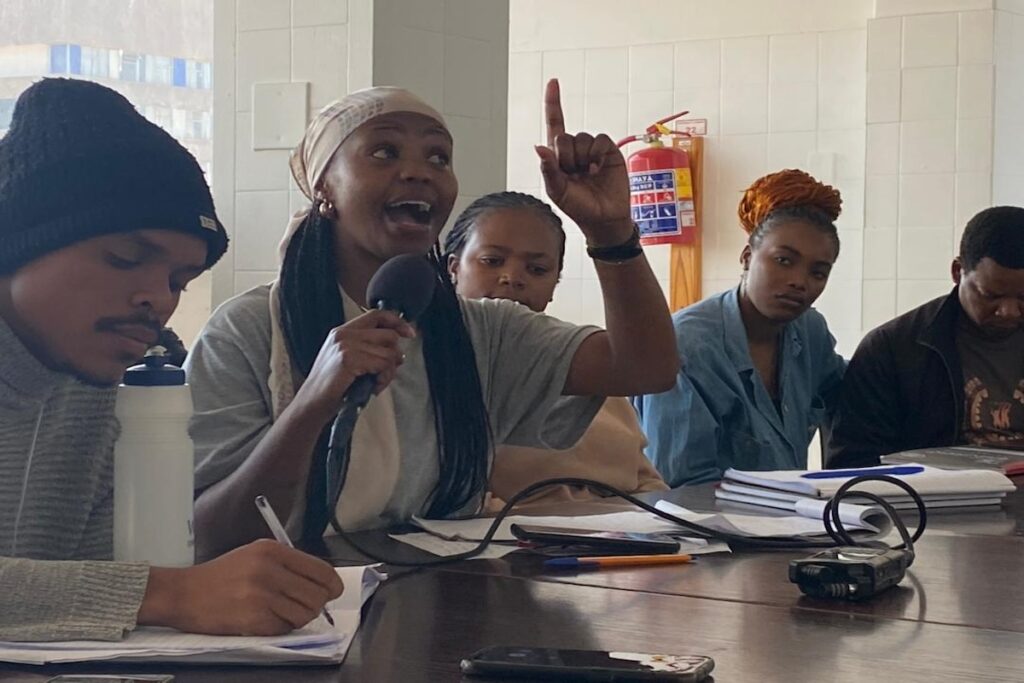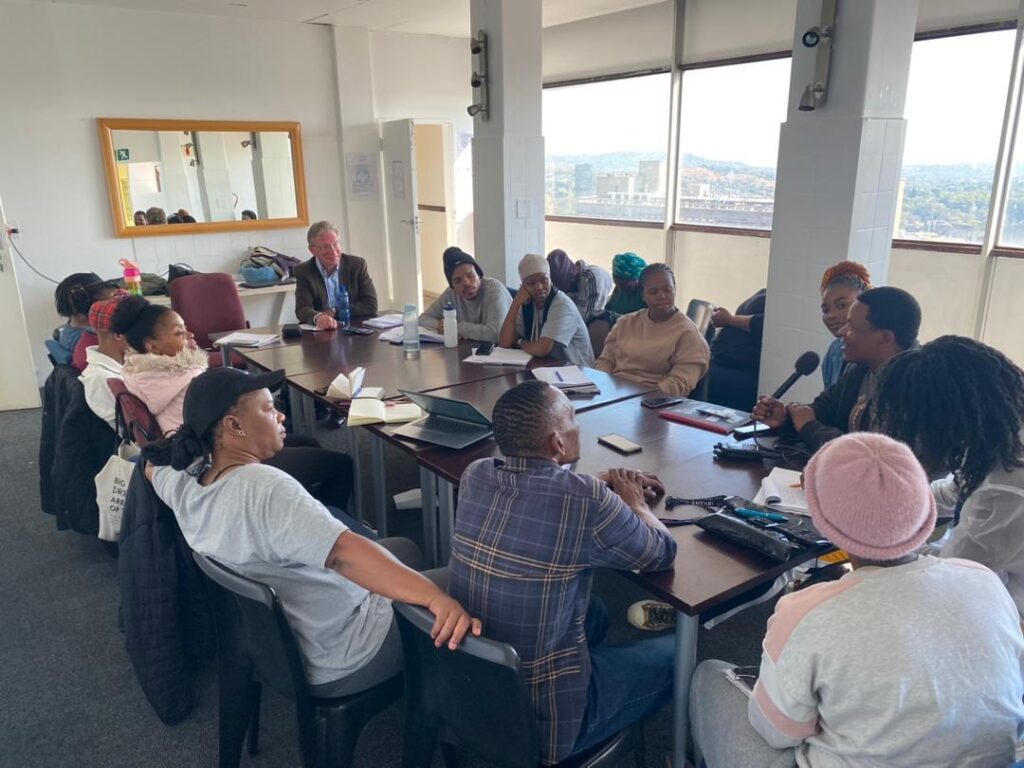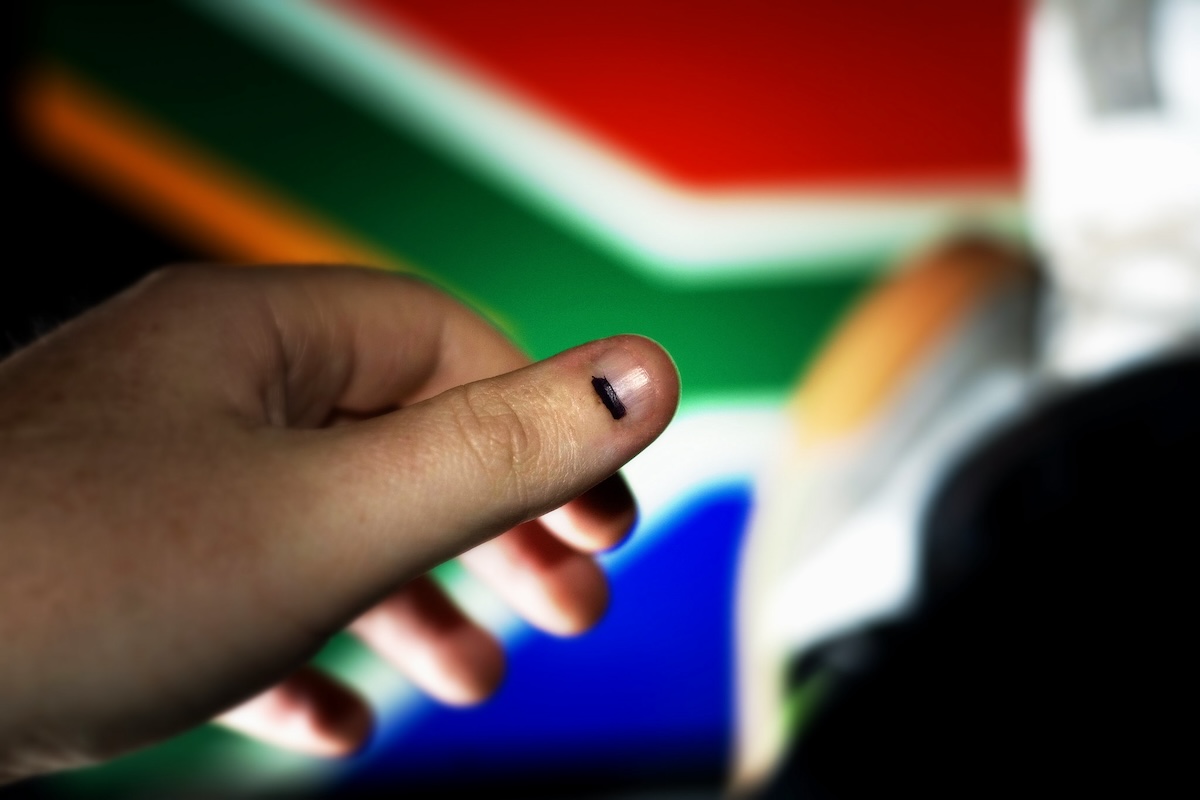Young people who belong to South Africa’s “born free” generation – those born after Nelson Mandela was released from jail in 1990 – should have been the major beneficiaries of ending three centuries of racial rule in their country.
It has not worked out that way.
Thirty years later many of them speak with profound disillusionment, disappointment and anger about the failure of their parents’ generation and their political leaders to deliver on promises made – and the corruption that infects all sectors of society.
That includes the famed African National Congress (ANC), the party that negotiated an end to apartheid, and that many of their parents are still loyal to.
In South Africa’s just completed national elections, for the first time since assuming power in 1994 the ANC has lost its ruling majority and will have to form a coalition government with opposition parties in order to govern.
At least some of the disintegration of support for the ANC is a result of young people’s lack of enthusiasm for it – not only for the ANC but for the political process in general. Despite predictions to the contrary, voter turnout declined for the May 29 vote.
Empty promises
“Honestly, we were promised something that was never there,” said 23-year-old Buhle Sibonyoni, who lives with her grandmother in Springs, an hour drive east of Johannesburg.
For her and millions of other “born frees,” the ANC’s promise to deliver “A Better Life for All,” its campaign slogan in 1994, rings completely hollow.
The unemployment rate for workers between 15 and 34 years old is 45%. For those 24 and under it is a shocking 59%. Millions of young people have never worked. They survive by living off their grandparent’s meagre pensions, odd jobs here and there, and hope that things will change.
Sibonyoni is enrolled in the innovative “Drama for Life” program at the prestigious University of Witwatersrand in Johannesburg. That puts her and her fellow students interviewed for this article in what should be an elite group of young people.
The program trains students to become drama therapists to address the profound mental health needs of children. It also enrolls artists of various kinds who don’t have undergraduate degrees but can earn a gradate diploma which then allows them into the fourth year “honors” degree program which follows the typical three-year bachelor’s degree.

Under apartheid, the university by law had an almost entirely white student body. But it has undergone a substantial transformation, and the majority of students are now Black.
But even though they have been able to enroll in a university that would have been off-limits to them during the apartheid era, just staying in school is a struggle.
Seemingly every day Sibonyoni gets invoices from the university demanding more fee payments – which she has trouble affording. She manages by doing voice overs for cartoon characters in videos. But it is irregular work, and 25% of what she earns goes to her agent.
What upsets her is that she has been told from an early age that education is essential to achieving success. “But it’s not really the key to success,” she said.
And while she struggles to pay her rent, and other expenses, she sees too many South Africans enriching themselves through blatant corruption. “There’s so much corruption in our country, robbing people of basic stuff,” she said.
Change still far off
“2024 is our 1994” is how this year’s election has been described by many: expressing hope that it would bring about change on a level achieved in the historic 1994 elections.
“At one point I had faith in that statement,” said Jessica Mungoma, 23, who didn’t even register to vote. “But as I stand now, I don’t see it happening. I feel change is still far, far away from us.”
Aphiwe Komeko, 31, another “Drama for Life” student, was a year old when Mandela became president.

“What makes this so painful is that there is a good chance that apartheid would not have been overthrown if young people had not been at the forefront of the revolution,” she said, referring to the 1976 Soweto youth uprising that led to the eventual end of apartheid.
Komeko grew up in Guguletu, a segregated Black township outside of Cape Town. Her mother, a loyal ANC supporter, applied for a house in 1996, but is still living in the same shack she was then. “When I go back home, I’m still going back to that shack,” Toyi said.
She has more or less given up on the system to deliver for her and her family – and realizes it will be up to her to achieve a decent standard of living. One day, she vows, she will buy her mother a house. “I am not waiting for the ANC to do that.”
It’s not as if the government and private industry have ignored the crises of youth unemployment and college affordability. A plethora of programs have been instituted like the National Student Financial Aid Scheme, or NSFAS, the Zlto program where youth can earn tokens by doing volunteer work which they can use to buy food and other supplies, and RLabs, which trains young people for technology careers.
The problem is that these programs only partially address the mammoth task at hand.
“The power is in our hands”
One hopeful sign, however, is that despite deep disillusionment, many of the students we interviewed say they realize they have a responsibility to effect change.
“I do believe that the power is in our hands now,” said Buhle Sibonyoni. “We are having these conversations, which is fine and good, it’s great, but how are we getting other people who are in different spaces to engage in such conversations?”
Students like Kayleigh Davids, 23, who is studying to be a drama therapist, have a nuanced view of how generations of racial rule have contributed to deep mental health challenges and traumas that are rarely addressed.
“What I want to do with my degree is to find ways to get people the mental health services they need,” she said. “Before you can learn something in school, before you can show up for work, before you can run a country, you need to sort out those traumas.”
“We are only 30 years into our democracy and the road is still long,” said Davids, an oblique reference to Nelson Mandela’s autobiography “Long Walk to Freedom.” “But what’s important is that enough people are starting to see the faults, enough people are willing to speak out about some of the issues and do something about them.”
Including herself and many of her peers.
Louis Freedberg is a veteran journalist who reported on South Africa and youth issues for Pacific News Service and many other publications. He was born and raised in South Africa and reported on the 1994 elections and the transition to democracy there.
Feature image: Darryn van der Walt via Flickr. Republished under Creative Commons license.













